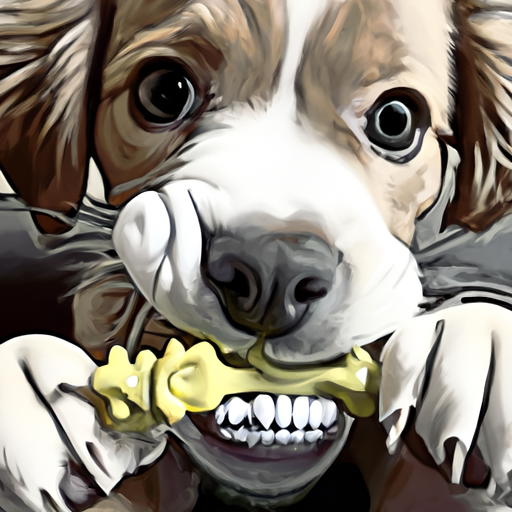Just as human babies experience teething, so do puppies. This phase can be uncomfortable for your little four-legged friend, but as a caregiver, you can help them get through it with ease. In this guide, we’ll address everything you need to know about puppy teething.
Understanding Puppy Teething
Just like human babies, puppies have a set of primary or “baby” teeth that eventually fall out to make room for adult teeth. This process, known as teething, usually starts around 3 to 4 weeks of age and continues until the puppy is about 6 to 7 months old.
The Stages of Puppy Teething
Puppy teething can be broken down into four main stages:
- Birth to 3 weeks: At this stage, your puppy won’t have any teeth.
- 3 to 6 weeks: Your puppy’s deciduous (baby) teeth will start to come in.
- 12 to 16 weeks: Your puppy will start losing baby teeth, and adult teeth will begin to grow.
- 6 to 7 months: By this stage, most puppies will have all their adult teeth.
Recognizing Teething Symptoms in Puppies
During teething, your puppy may exhibit certain behaviors and symptoms such as:
- Chewing on everything
- Drooling more than usual
- Irritability
- Loss of appetite
- Red, swollen gums
How to Soothe a Teething Puppy
There are several ways you can help your puppy cope with the discomfort of teething:
- Provide Chewing Toys: Chewing is a natural way for puppies to soothe their teething discomfort. Make sure to provide safe, appropriate toys that can’t be easily destroyed and swallowed.
- Use Cold Items: Just like a teething baby, a teething puppy might find relief from something cold. Consider freezing a wet washcloth or a puppy teething toy to help.
- Feed Soft Foods: If your puppy’s gums are very sore, they may struggle to eat their regular kibble. You can soften it with a little warm water or offer wet food instead.
What Not to Do During Teething
During your puppy’s teething phase, avoid:
- Yelling or punishing your puppy for chewing. Instead, redirect them to appropriate toys.
- Pulling or tugging on your puppy’s loose teeth. Let them fall out naturally.
- Ignoring signs of severe discomfort or distress. If your puppy seems excessively uncomfortable, consult your vet.
Potential Teething Problems
While teething is a normal process, there are a few potential problems to watch out for:
- Retained Baby Teeth: Sometimes, a baby tooth won’t fall out and can cause problems for the incoming adult tooth. If you notice this, contact your vet.
- Broken Teeth: Puppies can break their teeth on hard objects. Broken teeth can be painful and may need to be treated by a vet.
- Misaligned Teeth: If the adult teeth come in crooked or misaligned, it can lead to problems down the line. Consult your vet if you notice this.
Your Puppy’s Dental Health
Taking care of your puppy’s teeth goes beyond the teething phase. Regular dental care can prevent many problems in the future. Here are some tips:
- Brush your puppy’s teeth regularly with a dog-safe toothpaste.
- Provide dental chews that can help clean your puppy’s teeth.
- Have regular dental check-ups with your vet.
Frequently Asked Questions
How long does puppy teething last?
Puppy teething typically lasts from 3 weeks to 7 months of age. However, the most intense period, when the adult teeth are coming in, usually happens between 12 and 16 weeks.
Can teething cause diarrhea in puppies?
While teething itself doesn’t typically cause diarrhea, the stress associated with it might upset your puppy’s stomach. Also, puppies often swallow a lot of saliva while teething, which can lead to loose stools.
How can I tell if my puppy’s teething is causing them pain?
If your puppy is more irritable than usual, is chewing excessively, has a loss of appetite, or has red, swollen gums, they might be in pain from teething. In this case, you should consult your vet.
What can I give my puppy for teething pain?
You can provide cold items for your puppy to chew on, such as a frozen washcloth or a chilled teething toy. If your puppy seems to be in severe pain, you should consult your vet who may recommend safe pain relief options.
Remember, teething is a natural process that every puppy goes through. With your care and support, it can be a manageable phase in your puppy’s life. By understanding the process, recognizing the signs, and knowing how to help, you can ensure your puppy’s teething period is as comfortable as possible.



